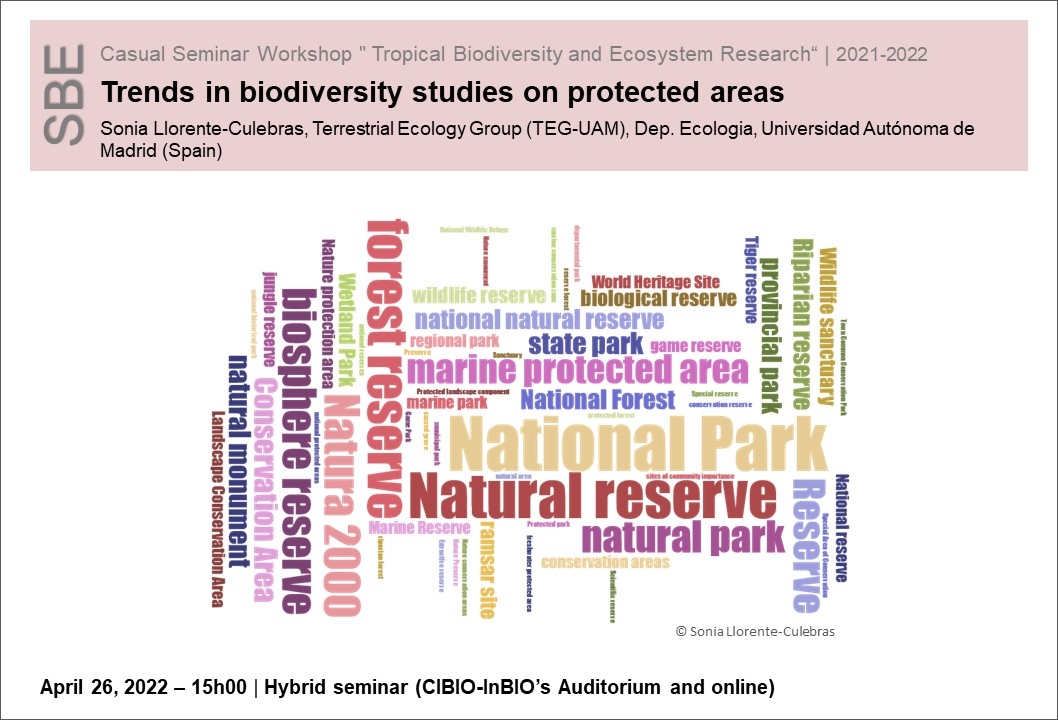Trends in biodiversity studies on protected areas
26 Apr 2022 - Sonia Llorente-Culebras, Terrestrial Ecology Group (TEG-UAM), Dep. Ecologia, Universidad Autónoma de Madrid (Spain) | 15h00 | Hybrid seminar

CASUAL SEMINAR WORKSHOP " TROPICAL BIODIVERSITY AND ECOSYSTEM RESEARCH"
The planet is facing unprecedented levels of biodiversity loss. With the goal of preserving the most singular and biodiverse regions, most of the countries have designed a network of protected areas. Traditionally, prioritization frameworks have aimed to protect areas that represent the highest species richness or threatened species. Thus, the design, study, and assessment of protected areas has been addressed mostly from a taxonomic point of view. But these approaches may overlook the different functions that species perform in the ecosystems, as well as the evolutionary history represented by a set of species, ignoring very often other biodiversity facets as functional or phylogenetic diversity. Through a systematic literature review I have tried to detect biases in our knowledge about the diversity captured by protected areas. Trends in the diversity facet and the taxonomic group studied, the geographical region of study or the data source of the research, among others, have been detected.
I am a PhD student at the Dep. Ecology of the Universidad Autónoma de Madrid (UAM). I have a BSc in Biology (2017; Universidad de Alcalá, Madrid), and a MSc in Animal Biology (2018; Universidad de Alcalá, Madrid). The principal axis of my thesis project is the conservation of functional and phylogenetic diversity of vertebrates. I am going to approach this topic (i) detecting trends and biases in our knowledge about the biodiversity preserved in protected areas, (ii) assessing the functional and phylogenetic diversity captured by protected areas (at different geographical scales) or (iii) detecting the regions most vulnerable to lose functional and phylogenetic diversity if the threatened species get extinct.
[Host: Richard
Ladle, 21st Century Conservation Lab - LACOS21]